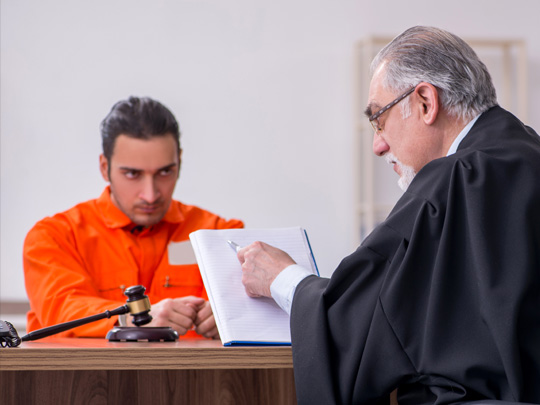When arrested for a crime, understanding the court system and the process can be unnerving. With various legal options available, you might wonder: should you just plead guilty? Choosing a guilty plea might seem like a straightforward resolution to a complex situation. After all, it could lead to a reduced sentence, creating a shortcut through the lengthy timeline of legal proceedings. However, the decision to plead guilty should not be taken lightly, as it carries significant implications for your immediate and long-term future.
Short-term Pros and Cons
When charged with a crime, individuals face the pivotal decision of pleading guilty or not guilty. However, the reasons why people plead guilty vary significantly and often hinge on the prospect of a plea bargain. A plea bargain can result in a lesser charge or a more lenient sentencing than might result from a trial verdict. This is especially attractive for those seeking to avoid the uncertainty and stress of a trial.
However, the decision to plead guilty is not without its drawbacks. Accepting guilt means waiving numerous rights, including the right to a trial by jury and the possibility of being found not guilty. Furthermore, a guilty plea, even to a lesser charge, is an admission of guilt that remains on your record, which can potentially affect future opportunities and personal freedom.
Long-term Pros and Cons
The pros and cons of pleading guilty extend far beyond the immediate aftermath of the court’s decision. On the one hand, pleading guilty to lesser charges can mean a guaranteed sentence, offering some measure of predictability and closure. For some, reducing a felony to a misdemeanor can make a significant difference in their lives, impacting everything from job prospects to lifestyle choices.
However, the long-term cons of a guilty plea are substantial. A criminal record, even with lesser charges, can hinder employment opportunities, restrict housing options and affect social relationships. And having a criminal record — stemming from a guilty plea — may limit future legal options and rights. Additionally, the decision to plead guilty often depends on the types of evidence in criminal cases, which can vary widely in reliability and impact.
In conclusion, the decision to plead guilty to a crime should not be made hastily. It requires a thorough understanding of both the short-term and long-term consequences. Consulting with a knowledgeable attorney can provide crucial guidance in navigating these complex considerations, helping to ensure that any decision made is in one’s best long-term interest.

